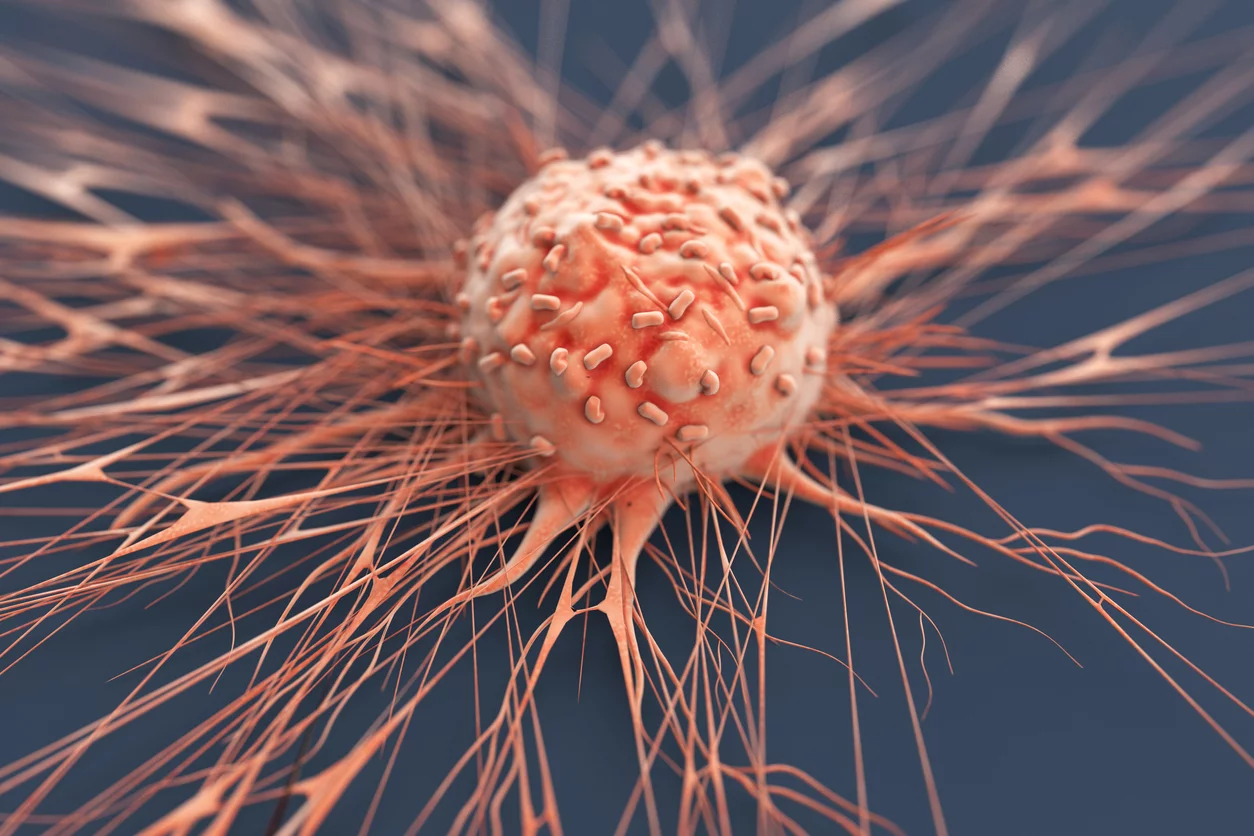If you were recently diagnosed with uterine fibroids, you might be concerned with fibroids and cancer risk. The good news is that while uterine fibroids can cause complications with fertility, menstrual cycles, or contribute to basic discomfort, they are rarely cancerous. How often are uterine fibroids cancerous? It is extremely rare for fibroids to be cancerous and having fibroids does not increase your chances for developing cancer.
What are fibroids?
If you are wondering, how often are uterine fibroids cancerous, then you will be relieved to know that by definition, fibroids are benign growths in the uterus.
Fibroids are linked to hormones, and while we are unsure exactly what causes them, there has been little evidence to suggest that there is a relationship between fibroids and cancer risk. These benign growths can happen in various places within the uterus and can cause complications based on their size and location.
Below is a guide to help you navigate your understanding of uterine fibroids and cancer. Of course, if you still feel uncertain about the risk and find yourself wondering are fibroids cancerous, then we recommend reaching out to your fibroids specialist to run diagnostic tests. When you see your specialist you should also ask as many questions as you like about your specific medical history and concerns.
Do fibroids increase the risk of cancer?
It is extremely rare that a fibroid can become cancerous and there is still little evidence to support a relationship between fibroids and cancer risk. The rare instances of a fibroid becoming cancerous are not related to the growth of the fibroid itself but are attributed to other factors within the uterus. It is more accurate to think of a fibroid has hiding, or containing cancerous cells within the fibroid rather than the fibroid developing the cancer cells. In other words, it’s not that fibroids develop cancer, it’s that cancer can develop in the fibroid. If you still feel you need to ask your specialist how often are uterine fibroids cancerous, then you can also suggest that you’d feel best if you had the basic screenings to check for cancer. Contact Viva Eve to talk to your fibroids expert and learn more.
Are fibroids cancerous?
Fibroids are growths that are caused by an imbalance in hormones. While there is little evidence to support fibroids and cancer risk, fibroids can cause severe symptoms of their own. Symptoms such as pain during sex, severe bloating, abnormal or heavy bleeding, severe cramps, or weight gain. Fibroids symptoms can definitely inturrupt your quality of life and can cause complications for fertility, pregnancy, and can make menstrual cyles painful or irregular.
While fibroids aren’t usually cancerous, you still may want to seek out a procedure to have your fibroids removed. At Viva Eve, we offer several different fibroid treatment options, including non-invasive treatment options like UFE (Uterine Fibroid Embolization) or hormonal treatments which can help to get rid of or shrink fibroids. There are also different types of fibroids that can grow in the uterus.
While the odds of fibroids being cancerous is still very low, fibroids have a higher likelihood of becoming cancerous if there is only one fibroid or if it grows on the outer uterine wall. So if you are asking the question — are fibroids cancerous? — The short answer is, no but your fibroids specialist will still check as a precaution. Knowing where the fibroids are growing will also determine how often are uterine fibroids cancerous. There are different types of fibroids that are categroized by where and how they grow in the uterus.
Intramural fibroids
Intramural fibroids are growths that occur within the uterine wall. These are the most common types of fibroids that can occur and while it’s highly unlikely these fibroids are cancerous, they can cause other issues if they grow and cause the abdomen to swell.
Submucosal fibroids
Submucosal fibroids grow outside the uterus. These fibroids grow within the tissue of the uterus and are more rare. Unfortunately, because of the proximity to the fallopian tubes they have been known to affect fertility.
Subserosal fibroids
Subserosal fibroids are the growths that occur outside the uterus. This is where your specialist will likely check to see are fibroids cancerous in this particular scenario. Even if the test comes back as negative, they can cause severe symptoms and might still need treatment as they are more likely to apply pressure on the internal organs.
What else increases my risk of fibroid cancer?
There are other factors that may alert your fibroid specialist to run tests to see if your fibroids are cancerous. Size, growth rate, the number of fibroids, bleeding, or genetic history can all play a role in increasing the chances of fibroids and cancer risk. If you are experiencing certain symptoms, or if any of the symptoms below apply to your current condition, ask your specialist if you have been screened for cancer risk. Having the below symptoms doesn’t mean that your fibroids are cancerous, instead we just suggest to err on the side of caution and communicate with your specialist. Only a medical professional can diagnose fibroids and cancer.
Fibroid size
If your fibroids grow rapidly in size, this could be a reason to check for cancer.
Abnormal bleeding
Excessive bleeding or bleeding while post-menopuasal could be an indicator to get checked for fibroids or cancerous growths.
Family history
If you have a history of cancer, or have a gentic history of cancer, it is always best to take a closer look at abnormal growths to make sure they are non-cancerous.
Number of Fibroids
If there is only one fibroid, it increases the chance of it being or becoming cancerous.
Age
After the age of 50, your chances for developing cancer increases. This is also true for uterine cancer and cancerous fibroids.
What if my fibroids are cancerous?
When your Viva Eve specialist runs a screening to determine are fibroids cancerous and comes back to tell you that cancer was detected then it’s important to immediately seek medical treatment. The symptoms of fibroids and cancerous fibroids are very similar so a doctor might use screening or imaging to take a closer look. While we don’t treat cancer in house at Viva Eve, we can still treat fibroids in a way that might help keep cancerous fibroids from spreading and we can direct you to a fibroids cancer specialist who can help treat your diagnosis.
If I do have uterine cancer, will I have a hysterectomy?
At Viva Eve, a hysterectomy is not the first option we look to for fibroid treatment or other complications involving the female reproductive system. Removing the uterus is a major procedure and a very permanent decision. If you are trying to conceive, or havent gone through menopause yet, a hysterectomy might not be a viable option for your current phase of life. If you are diagnosed with cancerous fibroids, it will be up to a specialist to determine which options are best for your specific condition to ensure the cancer is eliminated. If the cancer doesn’t seem to be treatable with other methods, or if it keeps coming back in the uterus, then a hysterectomy might become the best option to ensure quality of life.
If your specialist does determine that a hysterectomy is the best option for you, be sure to ask them all the questions you can think of and express any hesitations or concerns.
There are different kinds of hysterectomies. There are partial, total, and what is known as a “radical” which includes the removal of the tissues around the uterus and the upper part of the vagina. The benefits of a hysterectomy is that it eliminates the menstrual cycle, permenantly relieves pain related to the uterus, and is an absolute cure for fibroids. Your specialist will explain why they feel a particular option is best for you. Ultimately, you get to make the final decision, but our Viva Eve specialists always keep your quality of life in mind when recommending a treatment.
If you are concerned about having fibroids or cancer, reach out to us today to schedule an appointment.



